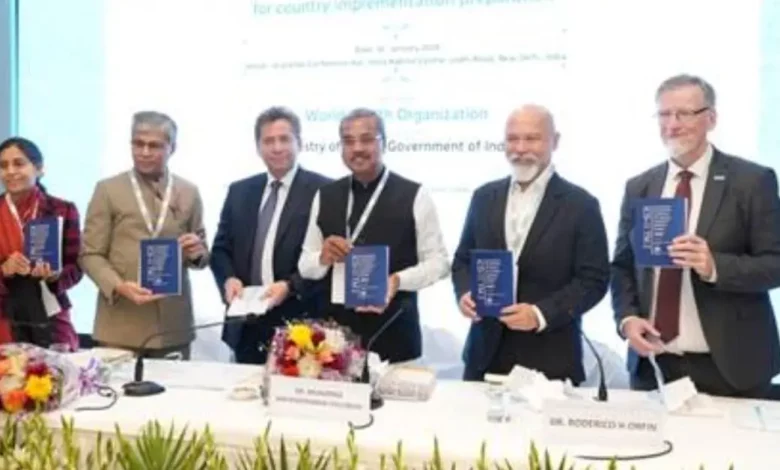Daily Current Affairs for UPSC
WHO Launches ICD-11, Traditional Medicine Module 2
Syllabus: Health[GS Paper-2]

Context: The World Health Organisation (WHO) has recently introduced the Traditional Medicine Module 2 of the International Classification of Diseases (ICD) 11.
More Information:
The Ministry of AYUSH in conjunction with the WHO has developed a disease classification for use under Ayurveda, Siddha, and Unani practices imported in TM 2 module of the ICD-11 series.
ICD:
- The International Classification of Diseases (ICD) is a standardised system designed by the World Health Organization, intended to allow healthcare professionals globally share information with each other and communicate using one language across standards.
ICD-11:
- The eleventh revision of the International Classification of Diseases (ICD-11) is now completely digital and includes around 17000 new unique codes and over 120000 codable terms.
- It also incorporates the terminology and data of prevalent diseases in Ayurveda, Siddha, and Unani Medicine internationally through the TM 2 module.
- The coding system now encompasses various diseases such as Malaria, insomnia, and Vertigo Guidance Disorder.
Importance of ICD-11:
- This initiative aims to enhance the healthcare delivery system in India It focuses on enhancing traditional medicine insurance coverage AYUSH, research and development policies for health-related issues.
- It also intends to link traditional medicine with global standards and become recognized all over the world.
- This initiative strategy was done from year 2014 to the end of 2023 and draft for Traditional Medicine Strategy for WHO has been prepared between years
- This plan will contribute to global standardisation of ASU medication by creating a universal terminology for disease definition.
- The ICD-11’s indexing of disease terminology associated with traditional medicine is a significant milestone in bridging the gap and creating a unified global tradition.
- Many member countries are interested in adopting a similar approach to include traditional medicine disease terminology within the ICD.
Traditional Medicines:
- According to the World Health Organization (WHO), traditional medicine encompasses the knowledge, techniques, and customs derived from various cultures, which have been utilised for generations to promote well-being, prevent and diagnose ailments, and provide treatment for both physical and mental illnesses.
Conclusion:
- The Traditional Medicine Chapter in the ICD-11 is an important step in including Traditional Medicine conditions in a standard classification used in conventional medicine.
- The WHO may develop more modules for classifying other forms of Traditional Medicine in the future, as long as certain requirements are met.
- Module 2 specifically focuses on Ayurveda and other related diagnostic systems in Traditional Medicine.
News Source: PIB





.png)



